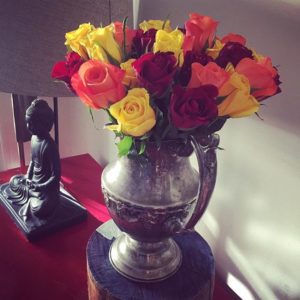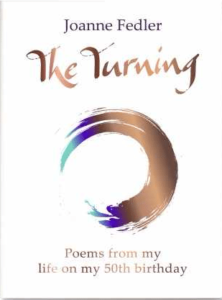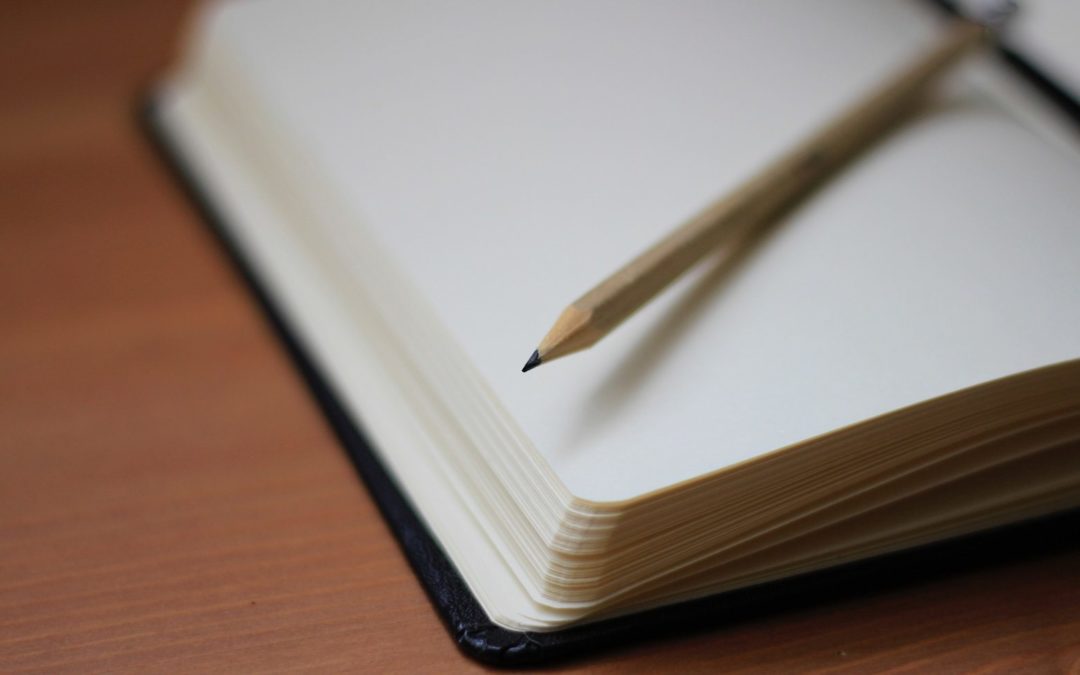
Dueling with a Four-Year-Old
Dueling with a Four-Year-Old
There is a world, a ‘place of tomorrow,’ Kahlil Gibran writes, in which our children’s souls dwell, which ‘we cannot visit, not even in our dreams.’ That world of fairies and elves my daughter inhabits is a familiar, beckoning place. I delight in her lilting musings about their whereabouts and wardrobes, her wonderment at dust particles caught in sunlight, her vain attempts to keep awake to catch a glimpse of the tooth fairy at work. I mean, how offensive really, is the idea of tiny mercurial winged incarnations mischievously going about their business of harvesting milk teeth and glittering the world?
But there is a place in which my son’s soul dwells – and that is another matter altogether. It is a world shrouded in Japanese secret culture. A world based on an ancient Egyptian fighting game. In this world, my son, would you believe, is a Master. So he tells me. A Yugi-Oh Master. And he is only 4.
Yugi-Who?
‘Yugi-Oh,’ Mum, he sighs impatiently, shuffling his deck.
With a handful of cards, frayed from months of being clutched in grubby paws, streaked with the odd trace of peanut butter and salami grease, my son – that tantrum-wielding, two legged, accident-about-to-happen irrational scrap of maleness – is transformed into a self-possessed, wily and secretly knowledgeable warrior.
The skill of the Yugi-Oh master is as prized as the mystery of the ancient Millennium Puzzle. And somehow, my son is part of the cult dedicated to possessing both. I do not know how it happened. One day he was belting out ‘Bob the Builder, can we fix it, yes we can!’ and the next, he had become a hustler. A dealer. Speaker of a code. Joey Wheeler. Yami Yugi. Seto Kaiba.
Apparently one of the children at his kindy who has an older brother gave him a Yugi-Oh card. Just one card. And a terrible monster was born.
Consider that, despite having been told a few hundred times, he cannot remember to flush and wash, and yet, though unable to read, he will unfailingly recite the full name of every single card in his deck of 80-or so cards. And mind you, the names have not been designed with a four-year old’s slight lisp and semantic ignorance in mind. Forget ‘Tinky-Winky’, ‘Dipsy’, ‘Laa-laa’ and ‘Po.’ No. Try ‘Helios Pterosaur,’ ‘Ryu Kishin Powered,’ or ‘Darkly Big Rabbi.’ Try ‘Mobile Castle Alive Cogwheels with Gear Golem.’ Or ‘QJ Dragon of Cyan Eye.’ Or ‘Polymerization.’ ‘Humanoid Worm Drake.’ ’Nobleman of Extermination.’ ‘Rabid Horseman.’ He rattles these off with the same deft proficiency as the rhymes from Cat in the Hat and with the blurry indistinct enunciation of a little person’s tongue.
The images on the cards are nightmarish. Ghouls, monsters, boars, fierce and furious beasts. My personal worst is ‘Ultimate Sacrifice,’ with someone’s head being cut off, resplendent with exaggerated gushes of blood in gory Japanese comic book style.
Okay, I won the ‘no-guns-in-our-house’ battle. I would even go so far as to say I am close to victory on the ‘we-don’t-torture-the-cat’ battle. Time will tell whether or not I have succeeded in the ‘war-is-evil’ indoctrination. But somehow, under my very nose, these evil, wicked, ugly, violent (my words), cool, powerful, magical (his words) cards have found their way into our home, and into his heart. I have to reign in every shred of my instinct that wants to say, ‘You cannot have them.’ They are his beloved cards, and with them in his hand, he is The Man. How can I deny him?
‘Let’s dool,’ he instructs me.
And so duel we do.
I sit opposite him and wait to be handed my deck of cards. Somehow he always manages to manipulate events so that – as if by sheer luck – all the dragons, the block attacks and the other powerful cards end up in his deck, not mine. I can never win.
Not that I would know how.
We sit facing each other. I follow his lead.
‘I meet you with Mystical Elf.’
I nod solemnly and turn over a card.
‘Yes, and I have Trap Hole.’
‘As you wish,’ he says. ‘Now prepare to meet your doom,’ and he turns over Uraby. ‘It’s all over for you,’ he reflects.
In a few cards time, he has unilaterally consigned a number of my cards to The Graveyard.
‘Good dooling, mum,’ he says. ‘Better luck next time.’ And off he saunters to wallow in yet another victory.
I want to hold him from ugliness, keep him innocent just that little bit longer, before he releases my hand and dissolves into the crowd of his peers, into a tyrannized world at the mercy of media, misguided politicians, the price of oil and terrorism. But I watch over him, even from a distance. And from there I observe that the four corners of his life are ruled by the artistic creations of Japanese cartoonist Kazuki Takahashi who began to draw the Yugi-oh series in 1996 following a weekly comic series. My son’s soul and pocket are owned by Konami, the same Japanese company that marketed Teenage Mutant Ninja Turtles. What chance do I have?
I log onto the internet to find out more. What is Yugi-Oh?
It means literally, ‘King of Games,’ and he is king who can use his fighting monsters each with different abilities and traits to defeat his opponent. Skill and strategy determine the outcome (forget Pokemon, a game of collecting and training a set of rather cute little monsters – that’s way too tame). In Yugi-Oh, each monster has a number of attack and defence points as well as an attribute: earth, water, wind, light, dark and fire. Each has a strength depicted by the number of stars on the card. Some monsters can fuse together to create a new and more powerful monster. Some monsters have magical effects – either by making monsters stronger or weaker, or by altering the conditions of the battle field. Dueling is regulated by a strict code of conduct: declaration of a move in a loud, clear voice before play; truthful answers to opponents questions about cards in your graveyard and an injunction against touching an opponents’ card without asking permission. Somehow, my son has absorbed this complex world of a war waged with a deck of cards, and like a language it has seeped into his pores, and become his interpretive grammar.
On the Yugi-Oh website is a page called The Parents Guide to Yugi-Oh. Included there are questions like: is the content appropriate for my child? Is it a good use of my child’s money and time? Is there any educational value in these cards?
The answers are surprisingly candid: the content of some of the cards may be ‘a bit racy’ and ‘may include concepts that might not be appropriate for some children.’ And ‘we do not think it a great idea to have your children spend every waking hour doing any one thing…’ and ‘..overall, its value as an educational toy is probably minimal.’
I’ve done the research, and I’m still none the wiser and still a pretty lousy dueler. I’m not convinced it’s good for my son, it may even be bad for him. All I know, is that a secret contest was raging for my son’s soul, and Yugi got there first. I have to accept defeat.
I am not a gracious loser. I take a strategic approach: there must be something in it for me. Yugi-Oh is now part of my arsenal. I can get my son to do just about anything with the threat of Yugi-Oh deprivation or a reward of new Yugi-Oh cards. And holy yami-yugi, they now make Yugi-Oh toothbrushes, and so endeth the battle of Getting-Teeth-Brushed. I’m thinking of starting a campaign for Yugi-Oh sunblock (a Block Attack against Ultra-Violet Poison), Yugi-oh branded broccoli (Anti-oxidant Defence against Microscopic Cell Destroyers) and Yugi-oh bubble-bath (Soap Attack to strip Dirt Invaders from Hard-To-Reach Places).
If there’s anything I’ve learned from Yugi, it’s that sometimes, a sacrifice is the only way to transform into an unbeatable monster.

Joanne Fedler
Author, writing mentor, retreat leader. I’m an internationally bestselling author of nine books, inspirational speaker and writing mentor. I’ve had books published in just about every genre- fiction, non-fiction, self-help, memoir – by some of the top publishing houses in the world. My books have sold over 650 000 copies and have been translated in a range of languages. Two of my books have been #1 Amazon bestsellers, and at one point the German edition of Secret Mothers’ Business outsold Harry Potter- crazy, right?







